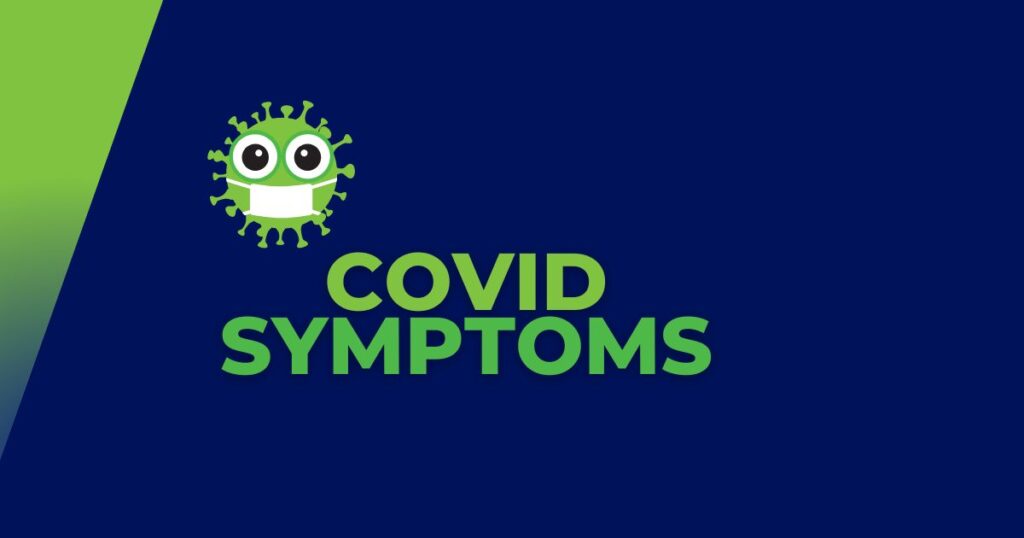COVID Symptoms: How to Identify, Treat, and Prevent Them?
The COVID-19 pandemic has impacted the world in ways we never imagined. The virus has affected millions of people globally and has caused significant disruptions to daily life. COVID-19 is a respiratory illness caused by the SARS-CoV-2 virus. The virus primarily spreads through respiratory droplets when an infected person coughs, sneezes, talks, or breathes.
COVID symptoms can vary widely from mild to severe, with some people being asymptomatic. The symptoms usually appear within two to fourteen days of exposure to the virus. Common COVID symptoms include fever, cough, shortness of breath, fatigue, muscle or body aches, headache, loss of taste or smell, sore throat, congestion or runny nose, nausea, and diarrhea.
The severity of the symptoms can depend on a variety of factors, including age, underlying health conditions, and immune system function. Older adults and people with pre-existing medical conditions, such as diabetes, heart disease, or lung disease, are at higher risk of developing severe illness and complications from COVID-19.
It’s essential to know the symptoms of COVID-19 and seek medical attention if you experience them. Additionally, taking preventive measures like getting vaccinated, wearing a mask, practicing social distancing, washing your hands, avoiding touching your face, and staying home if you’re sick can help stop the spread of the virus.
In this article, we’ll take a closer look at the symptoms of COVID-19, how to identify them, treat them, and prevent them from spreading.

What are COVID Symptoms?
COVID-19 is a viral infection that affects the respiratory system, leading to flu-like symptoms. The symptoms of COVID-19 can appear anywhere from 2 to 14 days after exposure to the virus. The most common symptoms include:
1. Fever
Fever is one of the most common symptoms of COVID-19. It is an increase in body temperature above the normal range of 97.7 to 99.5 degrees Fahrenheit.
2. Cough
A dry cough is another common symptom of COVID-19. It is a persistent cough that doesn’t produce any mucus or phlegm.
3. Shortness of Breath
Shortness of breath is a severe symptom of COVID-19, which can lead to respiratory failure. It’s essential to seek medical attention if you experience difficulty breathing.
4. Fatigue
Fatigue is a feeling of tiredness or weakness that doesn’t go away with rest. It’s a common symptom of COVID-19 and can last for several weeks.
5. Body Aches
Body aches or muscle pain can be a symptom of COVID-19, along with headache and chills.
6. Loss of Taste or Smell
Loss of taste or smell is a less common but notable symptom of COVID-19. If you experience a sudden loss of taste or smell, it’s essential to seek medical attention.
You may also like.Natural Remedies for Sinus Infection:10 Natural Remedies How to Cure a Sore Throat Fast? 12 Natural Remedies Monkeypox Symptoms in Kids:10 Common Signs and Prevention Strategies
How to Identify COVID Symptoms?
COVID-19 symptoms can be similar to other viral infections like the flu, cold, or allergies. It’s essential to monitor your symptoms and seek medical attention if they worsen or persist. Here are some ways to identify COVID symptoms:
1. Monitor Your Temperature
Take your temperature regularly and keep a record of it. A fever is one of the most common symptoms of COVID-19.
2. Check Your Breathing
If you experience shortness of breath or difficulty breathing, seek medical attention immediately.
3. Keep an Eye on Your Symptoms
Monitor your symptoms and seek medical attention if they worsen or persist.
4. Consult with a Healthcare Professional
If you are unsure about your symptoms or need medical advice, consult with a healthcare professional.
How to Treat COVID Symptoms?
If you experience COVID symptoms, it’s
essential to seek medical attention immediately. COVID-19 can lead to severe respiratory complications, and early treatment can help prevent the spread of the virus. Here are some ways to treat COVID symptoms:
1. Rest and Hydrate
Rest and hydration are essential for recovery from COVID symptoms. Get plenty of rest and drink plenty of fluids to stay hydrated.
2. Take Medications
Over-the-counter medications like acetaminophen can help relieve symptoms like fever, headache, and body aches.
3. Follow Your Doctor’s Advice
Follow your doctor’s advice and take prescribed medications as directed.
4. Seek Medical Attention if Symptoms Worsen
If your symptoms worsen or persist, seek medical attention immediately.
How to Prevent COVID Symptoms?
Prevention is the key to stopping the spread of COVID-19. Here are some ways to prevent
1. Vaccination
Getting vaccinated is the most effective way to prevent COVID-19. Vaccines are safe and highly effective in reducing the risk of getting infected with the virus.
2. Wear a Mask
Wear a mask to prevent the spread of the virus. Masks should be worn over the nose and mouth, and they should fit snugly against the sides of your face without any gaps.
3. Practice Social Distancing
Maintain a distance of at least 6 feet from others, especially in crowded areas. Avoid large gatherings and events.
4. Wash Your Hands
Wash your hands regularly with soap and water for at least 20 seconds, especially after being in public places or touching shared surfaces.
5. Avoid Touching Your Face
Avoid touching your face, especially your eyes, nose, and mouth, as the virus can enter your body through these areas.
6. Stay Home if You’re Sick
If you experience COVID symptoms, stay home and seek medical attention immediately. Avoid close contact with others, especially those who are at a higher risk of developing severe illness.
Conclusion
COVID-19 is a highly contagious virus that can lead to severe respiratory complications. It’s essential to know the symptoms of COVID-19, how to identify them, treat them, and prevent them from spreading. If you experience COVID symptoms, seek medical attention immediately and follow your doctor’s advice. Take preventive measures like getting vaccinated, wearing a mask, practicing social distancing, washing your hands, avoiding touching your face, and staying home if you’re sick. Let’s all do our part to stop the spread of COVID-19.
Disclaimer: The advice and suggestions mentioned in the article are for general information purpose only and it should not be taken as professional medical advice. Always consult your doctor if you have any questions or concerns.
FAQs
How long do COVID symptoms last?
COVID symptoms can last for several weeks, depending on the severity of the infection.
Can COVID cause long-term health effects?
Yes, COVID can cause long-term health effects like lung damage, heart damage, and chronic fatigue.
Can I get COVID even if I've been vaccinated?
Yes, breakthrough infections can occur even after vaccination, but they are usually milder and less severe than infections in unvaccinated individuals.
Are COVID symptoms different in children?
COVID symptoms in children can be similar to those in adults, but they may also include symptoms like diarrhea and vomiting.
Can COVID symptoms be confused with allergies or the flu?
Yes, COVID symptoms can be similar to other viral infections like the flu or allergies, but it's essential to monitor your symptoms and seek medical attention if they worsen or persist.
Can COVID symptoms be treated at home?
Mild COVID symptoms can be treated at home with rest, hydration, and over-the-counter medications, but it's essential to seek medical attention if symptoms worsen or persist.




